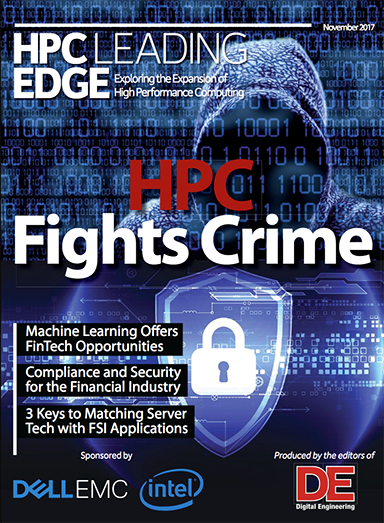HPC to the Rescue
Latest News
May 24, 2017
Advanced technologies have been getting a bad rap lately. A headline in The Wall Street Journal reads “Fear of Automation’s Dark Side Leads to Calls for Action,” while a headline in The Guardian asks “How Much Should We Fear the Rise of Artificial Intelligence?”
Some of the doom and gloom comes from a March PWC UK Economic Outlook report that predicted 38% of U.S. jobs could be at risk from automation by the early 2030s, compared with 30% in Britain, 35% in Germany and 21% in Japan.
Thankfully, most people seem to understand that computer overlords only make for great Sci-Fi movie plots. A PWC survey of 2,500 U.S. consumers and business leaders, released just a month after the economic outlook report, shows that “63% agree AI will help solve complex problems that plague our society and 59% believe it will help people live more fulfilling lives.” Check out more results here.
Safety and Security
In this debut issue of HPC Leading Edge, we are focusing on how high performance computing, and the technologies it enables, can enhance our safety and security. From responding to natural disasters to making safer products in safer factories, to cybersecurity, HPC plays an integral role. Unfortunately, a resistance to change can delay advanced technologies. In our cover story, we see that government regulations are impeding the deployment of potentially life-saving drones during natural disasters. On our last page we learn that IDC’s HPC team, Hyperion Research, found most U.S. companies are underprepared to deal effectively with potential security breaches—even though best practices to do so are already known.
The key to combatting the fear of change is communication. We hope the articles in this issue will help dispel those fears by showing how the HPC community is using the amazing advances in computing technology to make us safer.
Subscribe to our FREE magazine, FREE email newsletters or both!
Latest News
About the Author
Jamie Gooch is the former editorial director of Digital Engineering.
Follow DE






